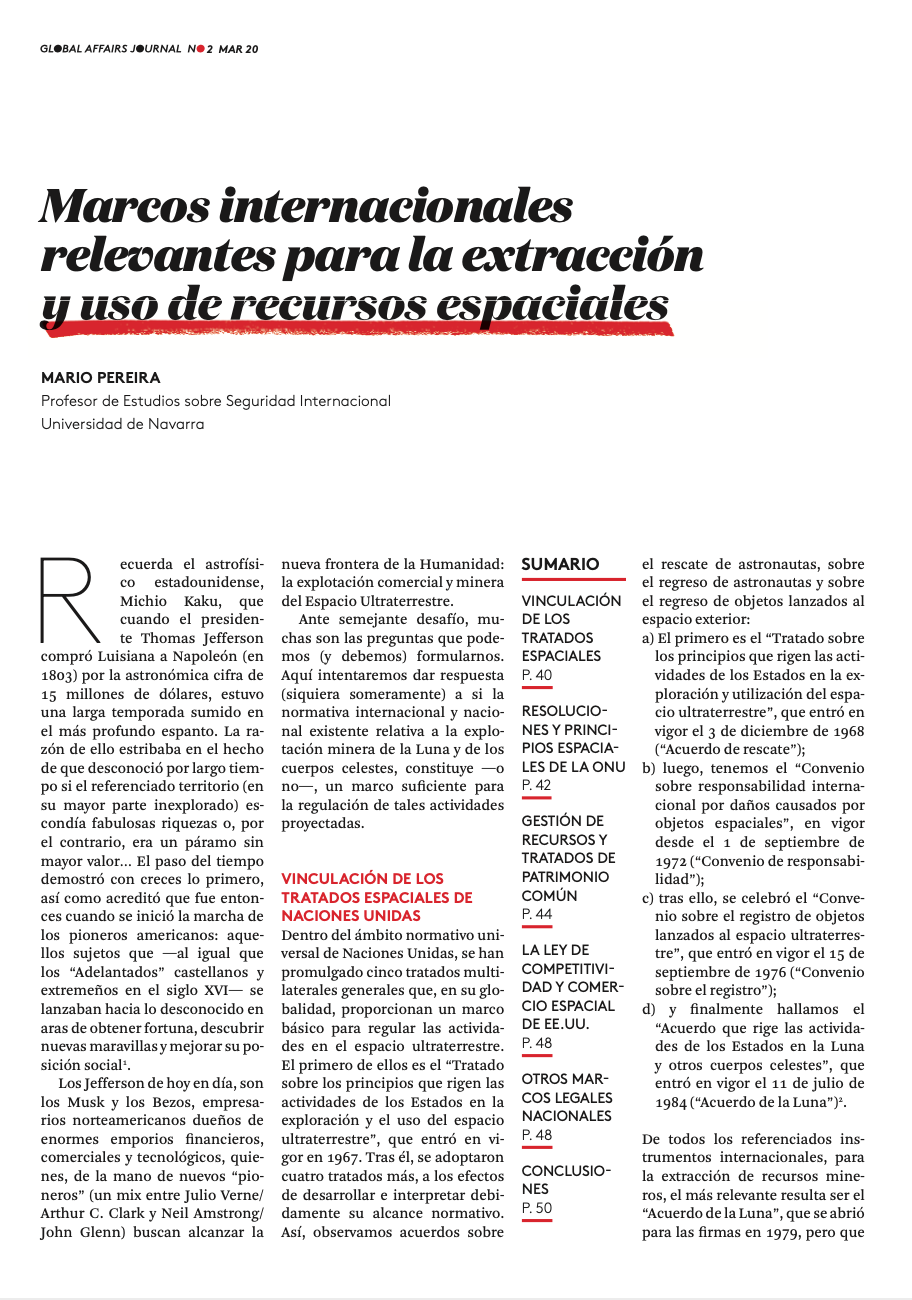![Insight on mineral extraction on an asteroid, from ExplainingTheFuture.com [Christopher Barnatt]. Insight on mineral extraction on an asteroid, from ExplainingTheFuture.com [Christopher Barnatt].](/documents/10174/16849987/gaj-foto-4.jpg)
▲ Vision on mineral extraction on an asteroid, from ExplainingTheFuture.com [Christopher Barnatt].
GLOBAL AFFAIRS JOURNAL / Mario Pereira
 [14-page document. download in PDF]
[14-page document. download in PDF]
INTRODUCTION
The American astrophysicist Michio Kaku recalls that when President Thomas Jefferson bought Louisiana from Napoleon (in 1803) for the astronomical sum of 15 million dollars, he spent a long time in deep fear. The reason for this lay in the fact that he did not know for a long time whether the referenced territory (mostly unexplored) hid fabulous riches or, on the contrary, was a wasteland of no great value... The passage of time has more than proved the former, just as it proved that it was then that the march of the American pioneers began: those people who - just like the "Adelantados" of Castile and Extremadura in the 16th century - set out for the unknown in order to obtain fortune, discover new wonders and improve their social position.
Today's Jeffersons are the Musks and Bezos, American businessmen, owners of huge financial, commercial and technological emporiums, who, hand in hand with new "pioneers" (a mix between Jules Verne/Arthur C. Clark and Neil Armstrong/John Glenn) seek to reach the new frontier of Humanity: the commercial and mining exploitation of Outer Space.
Faced with such a challenge, there are many questions that we can (and should) ask ourselves. Here we will try to answer (at least briefly) whether the existing international and national rules and regulations concerning the mining of the Moon and celestial bodies constitute - or not - a sufficient framework for the regulation of such projected activities.